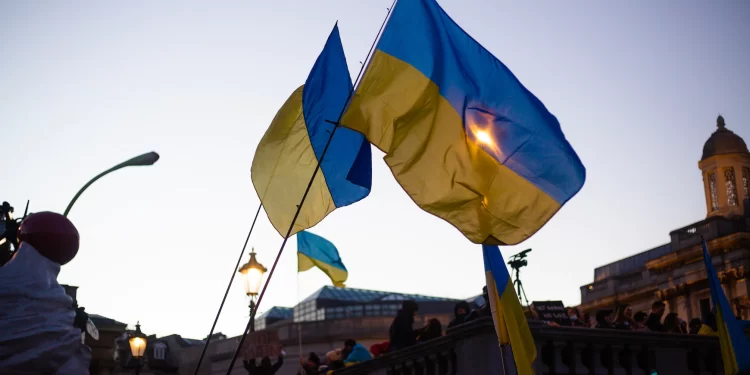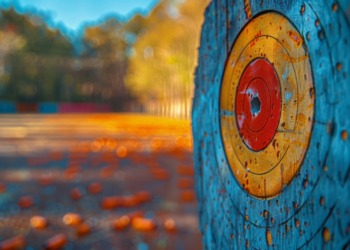The one-year “anniversary” of the War in Ukraine has sparked protests worldwide. Hundreds of thousands of people swarmed the streets, waving flags, chanting slogans, and demanding change. Although the overarching goal was the same — ending the War in Ukraine — the demands to achieve it differed widely.
In over 120 cities spreading around 45 countries, protestors gathered to show support for the Ukranian people. Politicians, citizens, and even royal family members have rallied to the cause.
In the UK, King Charles III praised the “remarkable courage and resilience” of Ukrainians, who have “suffered unimaginably.” Similarly, Prime Minister Rishi Sunak led a minute of silence.
"I can only hope the outpouring of solidarity from across the globe may bring not only practical aid, but also strength from the knowledge that, together, we stand united."
A message from His Majesty The King marking one year of conflict in Ukraine:
— The Royal Family (@RoyalFamily) February 24, 2023
London showed support for Ukraine by renaming a street “Kyiv Road” while protestors painted a Ukrainian flag at the doorstep of the Russian Embassy.
Russian citizens that fled the regime played a very active role in many of the protests. Their goal was to both show solidarity with the Ukrainian people who had suffered death and destruction and to highlight that Vladimir Putin’s regime and foreign policy are not supported by all Russians.
The banner of the Russian opposition, a blue strip on a white background, painted the streets all over the world, alongside the Ukrainian flag.
Any show of support, especially from the Russian people, is very important to denounce Putin and incrementally move towards regime change. According to Abbas Gallyamov, a former Kremlin speechwriter and political analyst that marched in New York, Russian protests are “important” as they disprove Putin’s assertion that all Russians support him. They will thus “hamper his game.”
If enough protests are to take place, the “undecideds in Russia — and they are the majority — will shift toward the opposition,” Gallyamov asserts.
Maybe it will not do much to change the regime now. Still, it will most likely have a significant impact on the future of Putin’s administration. Arkadiy E. Yankovskiy, a member of the Duma from 1994 to 1999, said: “These demonstrations cannot influence the situation in Russia right now, but it can influence the future of the country.”
Unfortunately, bringing these protests to the Kremlin’s doorstep is close to impossible.
When demonstrations in Russia broke out in February and March last year to condemn the “Special Military Operation,” Russian law enforcement suppressed the protests, arresting over 20,000 people in the first few days, to show that “public outcry would not be tolerated.”
Related Articles: Bloody Politics: One Year of War in Ukraine | World Still United to End the War in Ukraine | 2022: Annus Horribilis, especially for Putin; 2023: Annus Mirabilis?
Still, Russians are showing signs of support for Ukraine in any way they can: flowers and stuffed animals are laid down next to monuments dedicated Ukrainian writers, heroes, and other historical figures.
In Moscow, under Lesya Ukrainka’s statue, a Ukrainian writer, flowers honour the memory of the victims of the Dnipro missile strike that killed at least 46 people. This makeshift memorial at the heart of Russia is just one of many commemorating the victims of the war and condemning Putin’s government in the only safe way there is.
Yet, as of Saturday, 65 people are already detained for “antiwar” action. In St-Petersburg, several individuals were detained after laying flowers next to another Ukrainian writer’s statue.
As frustration with the regime increases, protestors take risker approaches, like painting a large “Z” sign, the infamous symbol of Russia’s military — in yellow and blue.
Still, protests and denunciations of the war or the regime are informally banned in Russia and can lead to years in prison.
Send diplomats, not weapons
Another growing source of protest, particularly felt in Germany, is the military help being sent to Ukraine.
In Berlin, over 13,000 people gathered on Saturday to condemn Germany’s contribution to the war. Germany, following the US, has sent the most military support to Ukraine. However, more people are becoming opposed to this involvement in the war.
“Not my war, not my government” was a popular slogan, along with “diplomates instead of grenades” and “stop the killing.”
The protest was organised by a prominent left-wing group, Die Linke party, to criticise the German Chancellor Olaf Scholz and advocate for negotiations for peace rather than efforts to prolongate the war.
A Russian T-72 tank, destroyed while fighting in Kyiv, was displayed near the Brandenburg Gate in Berlin. Citizens covered the tank with flowers to express their desire for peace rather than war.
Ukrainians installed a destroyed Russian T-72 tank in front of the Russian Embassy in Berlin, but Germans decorated it with flowers and tore off the Ukrainian flag.
The man explains that the flowers stand for understanding and diplomacy, instead of war and animosity. pic.twitter.com/Qb5jNQsajn
— What's the media hiding? (@narrative_hole) February 25, 2023
Similarly, in London, a demonstration held by Stop the War Coalition took place. Protestors wanted Europe to stop supplying weapons to Ukraine because it “extends the war,” according to Dalia Sanchez, an anti-war activist.
Another protestor, John Clark, condemned NATO’s eastern expansion and urged the government to send diplomats, not weapons. Among the attendees was former Labor Party leader and member of Parliament Jeremy Corbyn.
Russia or the West Protests
The war in Ukraine also cataylsed pro-Russia demonstrations in some states, such as Moldova.
On Sunday, several thousand protestors gathered in Chișinău, Moldova’s capital, to demand that the new pro-Western government fully cover citizens’ winter heating. The protest was organised by a Russian-friendly, possibly even Kremlin-sponsored, Shor Party.
The protestors also called for the resignation of Maia Sandu, the new President, while the government asked the Constitutional Court to declare the Shor Party illegal.
The “anniversary” of the Invasion has highlighted the global impact the war has had on citizens everywhere. Ukrainians, Russians, Germans, Moldovans and a plethora of other nationalities marched in the streets this past weekend. Political games are uniting people in their division: everyone is tired and fed up.
The People have spoken: things need to change.
Editor’s Note: The opinions expressed here by the authors are their own, not those of Impakter.com — In the Featured Photo: Ukrainian flag. Featured Photo Credit: Karollyne Hubert.










